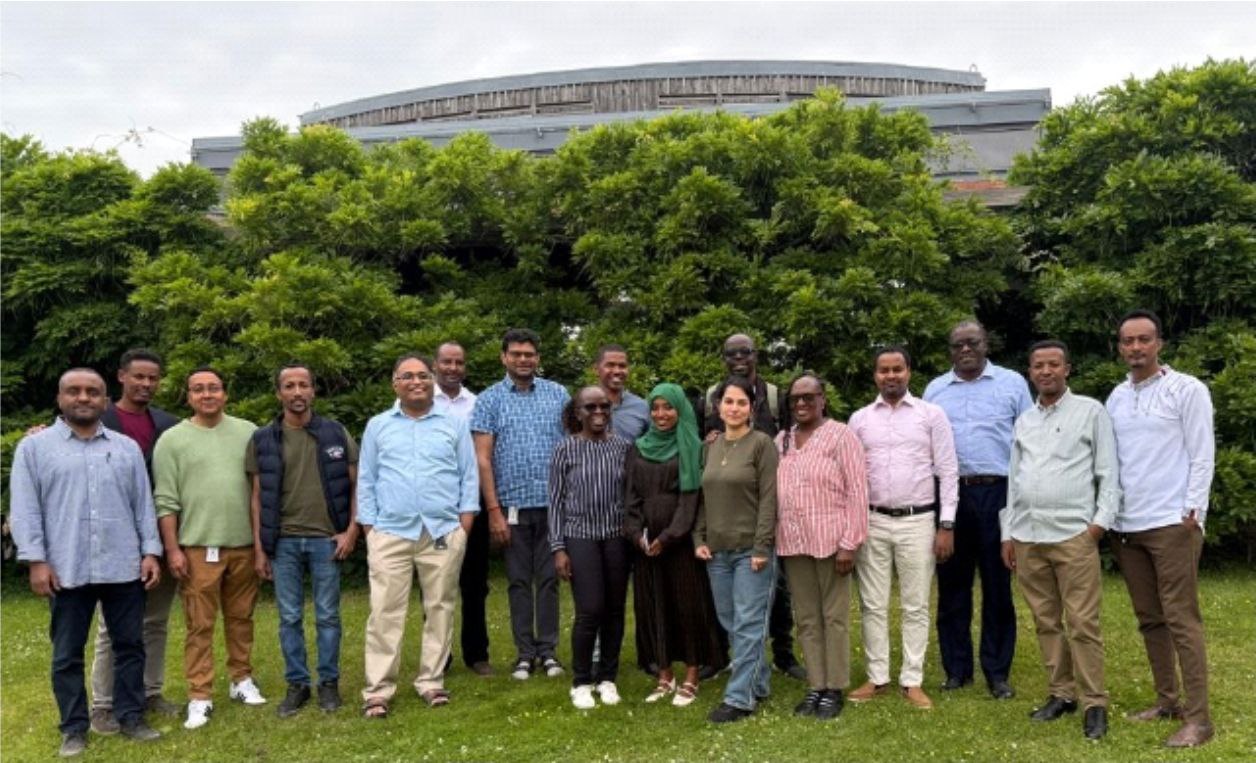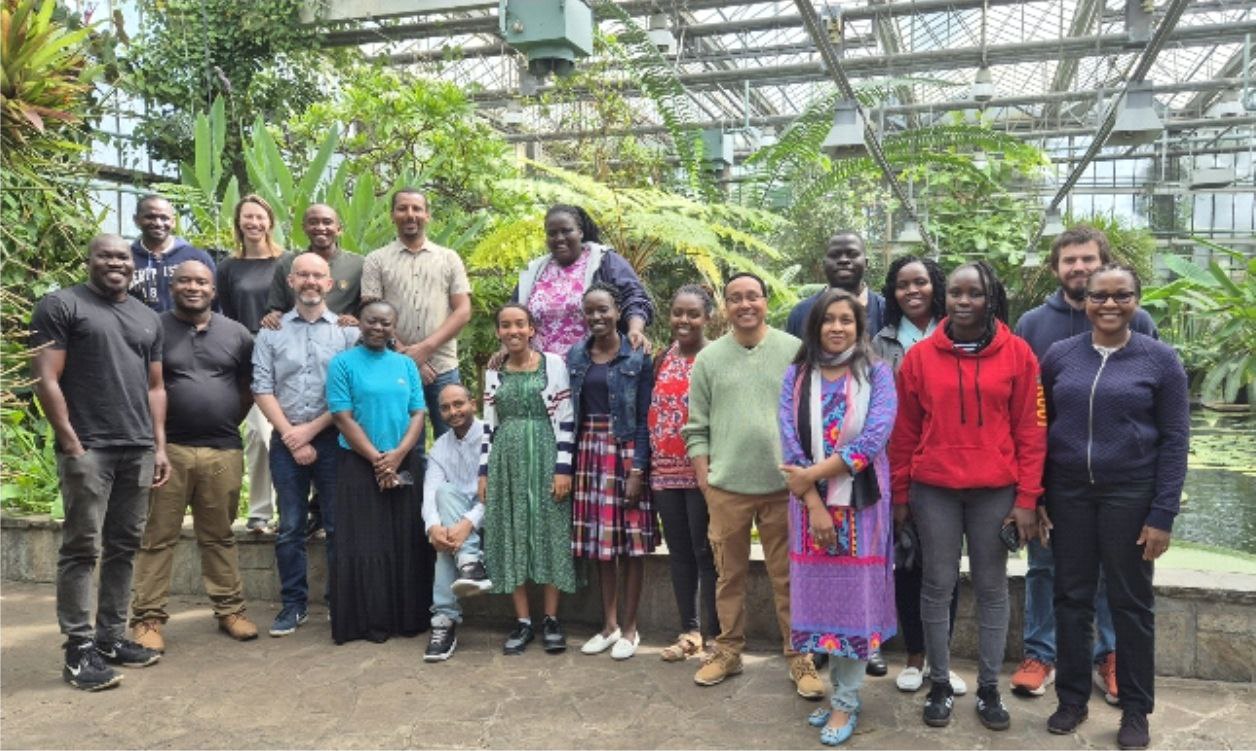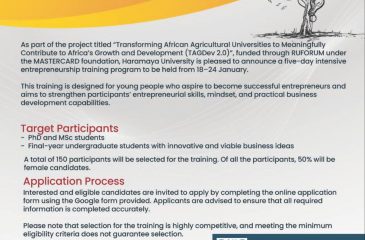University Enhances Biotechnology Expertise through European Collaborations
Haramaya University has made significant strides in its agricultural biotechnology capabilities, with faculty recently participating in two prestigious capacity-building programs in Europe.
These initiatives underscore the University’s commitment to utilizing modern biotechnological tools to address pressing challenges related to food security, climate change, and agricultural pest and disease management in Ethiopia and the broader region.
The University has strategically integrated biotechnology into its agricultural research, teaching, and extension systems, establishing itself as an emerging center of excellence in this field. The recent international collaborations are a testament to these ongoing efforts.
 In June 2025, staff from Haramaya University attended specialized capacity-building events at Ghent University in Belgium and the Swedish University of Agricultural Sciences (SLU) at Alnarp Campus in Sweden. These programs were integral components of the MoBioLab Project, funded by VIB (Vilvoorde), and the BREEDTECH Project, supported by the European Union under the Erasmus+ program, with Haramaya University serving as a key partner in both initiatives.
In June 2025, staff from Haramaya University attended specialized capacity-building events at Ghent University in Belgium and the Swedish University of Agricultural Sciences (SLU) at Alnarp Campus in Sweden. These programs were integral components of the MoBioLab Project, funded by VIB (Vilvoorde), and the BREEDTECH Project, supported by the European Union under the Erasmus+ program, with Haramaya University serving as a key partner in both initiatives.
The overarching aim of these collaborations is to strengthen scientific partnerships, enhance biotechnology research capacities, and foster international collaboration among institutions across Africa, Asia, and Europe.
At Ghent University, the “Summer School of Gene Editing” was organized by Professor Marc Heijde under the MoBioLab Project. Participants from Ethiopia, Kenya, Uganda, Bangladesh, and Iran engaged in rigorous theoretical and practical training in advanced gene-editing technologies, with a particular focus on CRISPR/Cas systems and genome manipulation in plants and model organisms. The program included workshops, laboratory sessions, and discussions led by leading scientists in the field.
 Dr. Alok Kumar, Associate Professor at Haramaya University’s School of Plant Sciences, represented the institution and actively contributed valuable insights into agricultural biotechnology and crop improvement research in Ethiopia. His participation is anticipated to significantly enhance the University’s expertise in molecular breeding and genetic engineering. This collaboration with Ghent University, facilitated by the MoBioLab Project, has also strengthened institutional ties, paving the way for future research collaborations, exchange programs, and academic opportunities.
Dr. Alok Kumar, Associate Professor at Haramaya University’s School of Plant Sciences, represented the institution and actively contributed valuable insights into agricultural biotechnology and crop improvement research in Ethiopia. His participation is anticipated to significantly enhance the University’s expertise in molecular breeding and genetic engineering. This collaboration with Ghent University, facilitated by the MoBioLab Project, has also strengthened institutional ties, paving the way for future research collaborations, exchange programs, and academic opportunities.
Simultaneously, another intensive training program was conducted at SLU, organized by Dr. Ramesh Vetukuri under the BREEDTECH (Erasmus+ Capacity Building Program) Project. This program brought together participants from Haramaya and Oda Bultum University in Ethiopia, Egerton and Likipia University in Kenya, and Al-Quds Open University and An-Najah National University in Palestine.
The training focused on modern biotechnology tools and techniques essential for sustainable agricultural development and plant improvement. Key thematic areas included Spray-Induced Gene Silencing (SIGS), Virus-Like Particles (VLPs), CRISPR and other genome-editing platforms, Protoplast Culture, and advanced data analysis and bioinformatics in biotech research. Participants also attended a national farmers’ day event in Sweden, providing exposure to the latest agricultural tools and techniques.
Dr. Abdi Mohammed, Vice President for Administration and Development and Co-Principal Investigator of the BREEDTECH project, along with team members Drs. Alok Kumar, Zelalem Bekeko, and Yonas Moges, actively engaged in this training, underscoring the University’s strong institutional commitment to innovation in agricultural science and education. This training fostered deeper collaboration with regional and international partner universities.
These two international training programs are strategically vital to Haramaya University’s vision of becoming a leading center for agricultural research and biotechnology. They represent a significant advancement in building both institutional and regional biotechnology capacity.
The skills acquired and networks established through these initiatives are expected to contribute to the development of gene-editing research laboratories at Haramaya University, enhance the curriculum for postgraduate programs in plant breeding, facilitate the launch of joint research proposals and projects with European and African partners, and ultimately establish a biotechnology knowledge-sharing hub in Eastern Ethiopia through trained staff and outreach initiatives.
Haramaya University Public & International Relations Directorate




